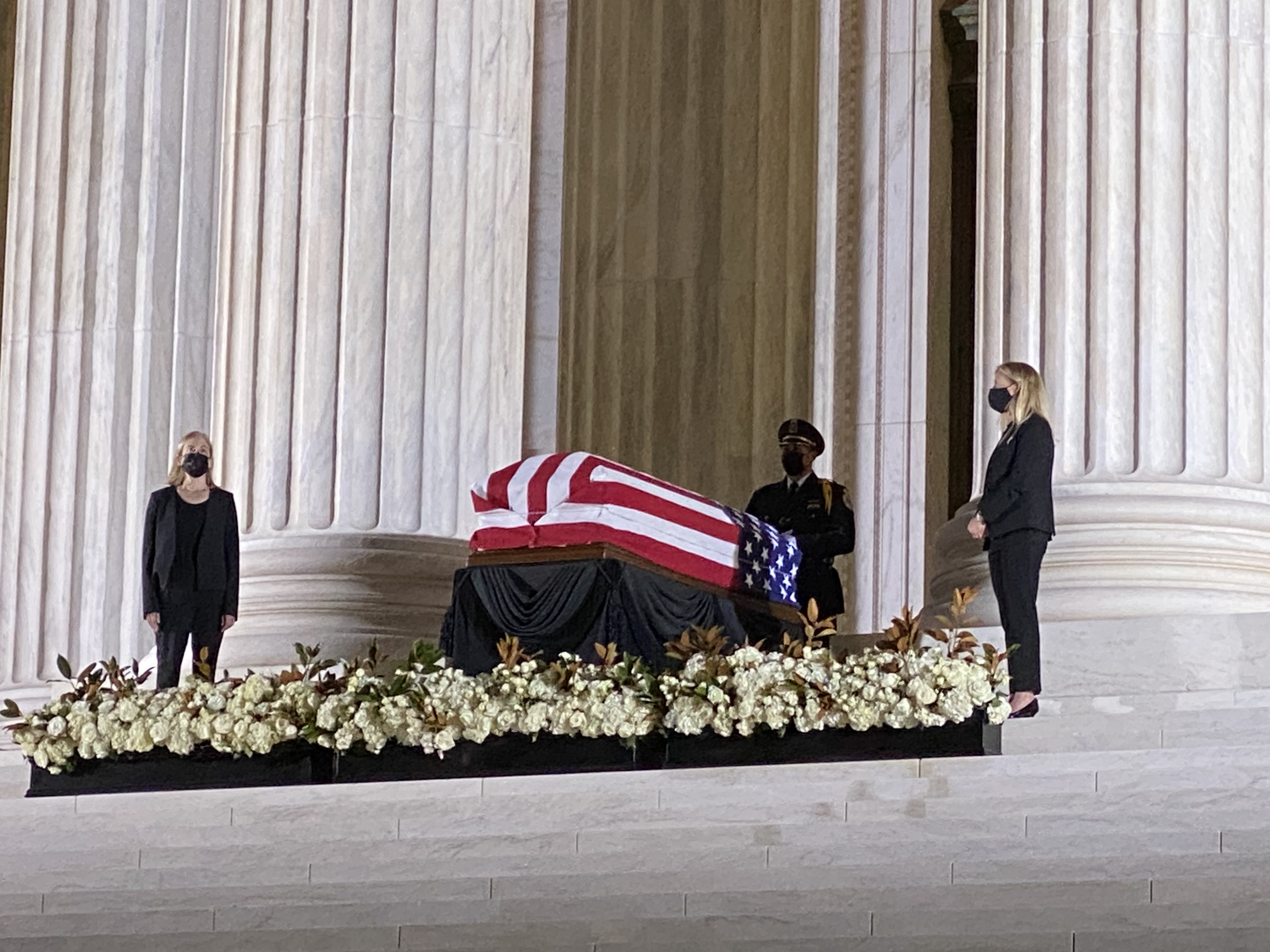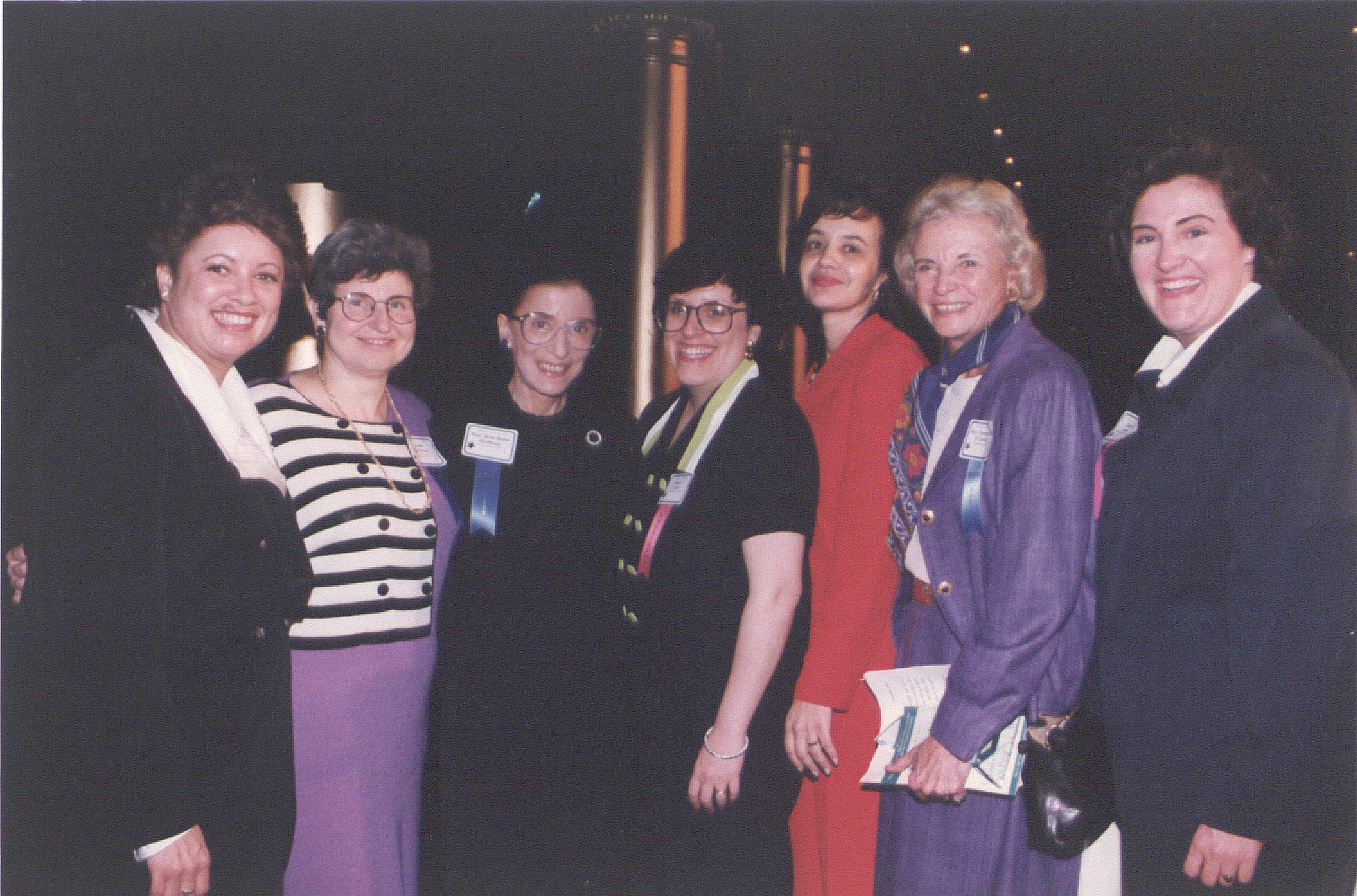We all stand on her shoulders.
The Women’s Bar Association of the District of Columbia (“WBA”) mourns the passing of the Honorable Justice Ruth Bader Ginsburg, the chief architect of the battle for women’s legal rights and the second woman appointed to the Supreme Court of the United States. Justice Ginsburg was a trailblazing lawyer and jurist, and an inspiration for generations of women and girls. We were proud to honor Justice Ginsburg as the WBA’s Woman Lawyer of the Year in 1994 and Janet Reno Torchbearer Awardee in 2008. We also were proud that she spoke at the WBA’s 1997 Annual Dinner, when she presented the Janet Reno Torchbearer Award to Justice Sandra Day O’Connor.
Despite attending and thriving at two of the nation’s most prestigious law schools (Harvard and Columbia), Justice Ginsburg struggled early in her career for opportunities. Indeed, as one of nine women who began law school at Harvard in 1956, the Dean of Harvard Law School famously once chastised her for taking the place of a man. And despite her stellar academic record, she was rejected from numerous clerkships and other legal positions because she was a woman and a mother, as well as because of her Jewish faith. After clerking for two years for Judge Edmund Palmieri of the U.S. District Court for the Southern District of New York, Justice Ginsburg spent a decade in academia, including as a professor at Rutgers Law School.
In 1972, Justice Ginsburg co-founded the American Civil Liberty Union’s Women’s Rights Project. As its General Counsel, she won five of the six gender discrimination cases she argued before the Supreme Court. Justice Ginsburg led a brilliant legal strategy in her efforts to dismantle systemic gender bias, often working with male plaintiffs to argue against gender-based state and federal laws.
Justice Ginsburg called on us to fight for the things that you care about, but do it in a way that will lead others to join you. Justice Ginsburg also has said that real change, enduring change, happens one step at a time. She demonstrated the power of strategic litigation to effect real and enduring change. And while her own march towards real and enduring change has ended, the many steps she took during her incomparable life have brought us closer to the equality she envisioned for our laws and for our nation.
The WBA’s mission is: Maintaining the honor and integrity of the profession; promoting the administration of justice; advancing and protecting the interests of women lawyers; promoting their mutual improvement; and encouraging a spirit of friendship.
Justice Ginsburg was the embodiment of this mission, and the women of the WBA – past and present – stand on her shoulders as we continue our fight against persistent gender discrimination and in support of anti-racist initiatives to achieve real and enduring change.



